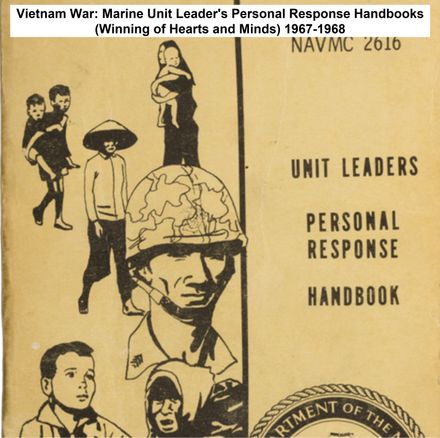$12.95
WWII German Saboteurs Infiltration of America British MI5, JAG Files, & Trial Transcripts - Download
World War II German Saboteurs Infiltration of America British MI5, U.S. Judge Advocate General Files, and Trial Transcripts Files
5,171 pages of British intelligence MI5, U.S. Judge Advocate General, FBI, and Supreme Court files covering the apprehension, trial, and execution of German saboteurs who landed in America in June of 1942.
On June 13, and June 17, 1942 two groups of German sabotage agents landed on Long Island and Florida as part of a German Abwehr operation. Operation Pastorius was the codename for the failed operation. The mission was named by Admiral Wilhelm Canaris, the chief of Abwehr, the German military intelligence organization. Canaris named the mission after Francis Daniel Pastorius, who was the leader of the first organized settlement of Germans in America.
During the first few months after the United States officially entered World War II, America's major contribution to the war was industrial. America was able to produce and supply weapons, ammunition, equipment and supplies to nations already actively engaged in fighting against Germany. This infusion of American production stung the German war machine. German high command ordered action to reduce American war production. However, with an ocean separating Germany and U.S. facilities the ability to use conventional military tactics was limited. German intelligence decided that sabotage would be the most viable means to interrupt American production.
The saboteurs selected for the mission were eight Germans who had spent time in the United States, two were American citizens. They were trained at a sabotage school outside of Berlin where they studied chemistry, incendiaries, explosives, timing devices, secret writing, and concealment of identity. The targets planned for their mission included: hydroelectric plants at Niagara Falls, Aluminum Company of America's plants, Ohio River locks, the Horseshoe Curve railroad pass near Altoona, PA, the Pennsylvania Railroad's rail yards, a cryolite plant in Philadelphia, Hell Gate Bridge in New York; and Pennsylvania Station in Newark, New Jersey.
The first batch of saboteurs arrived by U-Boat, the U-202, named the Innsbruck, it landed at Amagansett, Long Island, New York. They wore German military uniforms, so that if caught they would be handled as POW's and not as spies. The second batch came in on the U-boat U-584 and landed at Ponte Vedra Beach, Florida.
The first group included George John Dasch. British MI5 agent Victor Rothschild wrote in his report, "It is abundantly evident that the leader of the first group of saboteurs George John Dasch had every intention of giving himself up to the American authorities and compromising the whole Expedition, probably from the moment it was suggested to him in Germany that he should go to the USA on a sabotage assignment." Dasch went to Washington DC to turn himself in to FBI headquarters. He phoned FBI headquarters from his Washington D.C. hotel room and agents arrived to take him into custody. The FBI agents at first handled Dasch as if he was mentally unstable, until he showed them $84,000 he was given to fund the operation. The other seven were taken into custody over the next two weeks.
They were put on trial before a secret military tribunal comprised of seven U.S. Army officers appointed by President Roosevelt. The trial was held in the Department of Justice building in Washington. The prosecution team was lead by Attorney General Frances Biddle and the Army Judge Advocate General, Major General Myron C. Cramer. The Defense team was lead by Colonel Kenneth C. Royall, who later became Secretary of War under President Truman, and Major Lausen H. Stone, the son of Harlan Fiske Stone, the Chief Justice of the U.S. Supreme Court.
All Eight were found guilty and sentenced to death. Because of their cooperation, President Roosevelt commuted the sentences of Peter Burger to life in prison and George Dasch to 30 years. On August 8, 1942 the other six were executed in an electric chair on the third floor of the District of Columbia jail. Their bodies were buried in a potter's field called Blue Plains in the Anacostia region of Washington.
In 1948, President Truman granted Burger and Dasch executive clemency. They were deported to the American Zone of occupied Germany.
This collection includes:
German Saboteurs Infiltration of America - British Intelligence MI5 Files
93 pages of British Security Service MI5 files copied from material held at the British National Archives, covering the infiltration of the United States during World War II by German saboteurs. Because of the practice of British secrecy involving security matters, these files were not released to the public until April 2011.
The files consist of a 1943 report written by British agent Victor Rothschild who was sent to United States to be briefed on the incident. The report covers the sabotage mission's objectives; The German personnel sent on the mission; Information about the training the German agents received at sabotage school; and the equipment to be used during the operation.
"The task of the saboteurs was to slow down production at certain factories concerned with the American war effort," Rothschild wrote in his report. "The sabotage was not to be done in such a way that it appeared accidental," he noted. "The saboteurs were however told that they must avoid killing or injuring people as this would not benefit Germany."
Records of the Office of the Judge Advocate General
1,820 pages of documents consisting of reports, and correspondence relating to the trial of the German saboteurs who landed on Long Island and Florida in 1942. Included are reports of the executions, and petitions and correspondence concerning appeals for clemency for the remaining saboteurs after the war. Also included is some correspondence from individuals requesting information about the trial.
Trial/Military Tribunal Transcripts
3,018 pages of tribunal transcripts. Initially the Government intended to try the men in civil court, but the Roosevelt administration decided to create a secret military tribunal and prohibited any appeal to civil courts. The President would be the "final reviewing authority." On July 2, 1942, less than a week after the eight men had been apprehended, President Franklin D. Roosevelt issued Proclamation No. 2561 to create a military tribunal (7 F.R. 5101). On the same day he issued a military order appointing members of the military tribunal, the prosecutors, and the defense counsel. Acting under the 38th Article of War, he appointed Major General Frank McCoy to serve as President of the Commission, and appointed three major generals and three brigadier generals to complete the seven-man tribunal. The military order directed Attorney General Francis Biddle and Major General Myron C. Cramer, Judge Advocate General of the Army, to conduct the prosecution. The military order assigned Colonel Cassius M. Dowell and Colonel Kenneth Royall to serve as defense counsel. On July 7, Colonel Carl L. Ristine was appointed to defend Dasch, leaving Dowell and Royall to defend the other seven.
The trial began on July 8 at the Justice Department building. They were charged with 1) violating the law of war; 2) violating Article 81 of the Articles of War, defining the offense of corresponding with or giving intelligence to the enemy; 3) violating Article 82 of the Articles of War, defining the offense of spying; and 4) conspiracy to commit the offenses alleged in the first three charges. Although the public and press were excluded from the proceedings, brief communiqués were issued twice daily.
On August 3, 1942, the tribunal found all eight defendants guilty and recommended a sentence of death. President Roosevelt reviewed the nearly 3,000 pages of trial proceedings the next day and ordered the execution of six. Two were spared and sentenced to periods of confinement. The death sentences were carried out on the morning of August 8, 1942.
FBI Files
186 pages of FBI files mostly covering the background checks of the civilian court stenographers who recorded the tribunal proceedings.
Supreme Court Decision
The 50 page publishing of the Supreme Court decision on the validity of the tribunal. In Ex parte Quirin, 317 U.S. 1 (1942), a per curiam decision handed down on July 31, the Supreme Court of the United States upheld the jurisdiction of the tribunal. (A full opinion was not issued until October 29, 1942.) The final holding in Ex Parte Quirin upheld the chief executive's authority to create the military tribunal and distinguished the circumstances of the case from that of Ex Parte Milligan (1866), where the Court determined that President Abraham Lincoln's use of a military tribunal to prosecute a U.S. citizen during the Civil War was unconstitutional.
The eight saboteurs sought to file a writ of habeas corpus with the U.S District Court for the District of Columbia, but their motion was denied. In late July, while the military commission was in session, defense counsel persuaded the U.S. Supreme Court to hear oral arguments on defense challenges to the commission. The Supreme Court's decision, Ex parte Quirin, issued on July 31, 1942, considered the petitioners' "contention that the President is without any statutory or constitutional authority to order the petitioners to be tried by military tribunal for offenses with which they are charged" — violation of the law of war, violation of Articles 81 and 82 of the Articles of War, and conspiracy to commit these violations — and that they are consequently entitled to be tried in civil courts. The Court rejected these arguments, and ruled that the German saboteurs were "plainly within the ultimate boundaries of the jurisdiction of military tribunals, and were held in good faith for trial by military commission, charged with being enemies who, with the purpose of destroying war materials and utilities, entered or after entry remained in our territory without uniform — an offense against the law of war. Those particular acts constitute an offense against the law of war which the Constitution authorizes to be tried by military commission." The military tribunal concluded on August 1, with a guilty verdict for all eight defendants. On August 8, 1942 Haupt, Heinck, Kerling, Neubauer, Quirin, and Thiel were executed. Burger and Dasch received prison sentences
Attorney General Francis Biddle Speech
A 12 page transcript of a speech given by Attorney General Francis Biddle concerning the saboteur trial given on March 2, 1943 to the Chicago Council on Foreign Relations.










